In today’s world, there are many forms of communication, most of which rely on satellite signals and internet connections. This can be tricky on a boat at sea and requires some careful thought and planning.
Mobile phones
Most people rely heavily on their mobile phones to keep in touch and take for granted that these will be useable whenever they want to talk to someone, use an App or search the Internet. But these require you to have some sort of contract with a Service Provider and are usually country based. Roaming packages to be used overseas are available, but these are subject to ‘fair usage’ policies – they are only really designed for UK residents who have short periods abroad, not for people who are out of the UK for long periods of time.
When we travel, one of the best options we have is to invest in a local SIM card in each country that we visit. This will be perfect for local calls, using Apps and some data. Also, as we will have to be careful in some of the places that we will visit, we may put the SIM card into one of the older phone that we carry on board, in order to make it less appealing to thieves!
However, one problem that we have discovered, is that increasingly, organisations like the bank use mobile phones to send us alerts and security codes. This isn’t usually available to be sent to oversees numbers, so we need a plan B. We are currently checking out international SIM cards which can be used in most places on our travels….but this is a whole new world to find out about, so no decisions yet.
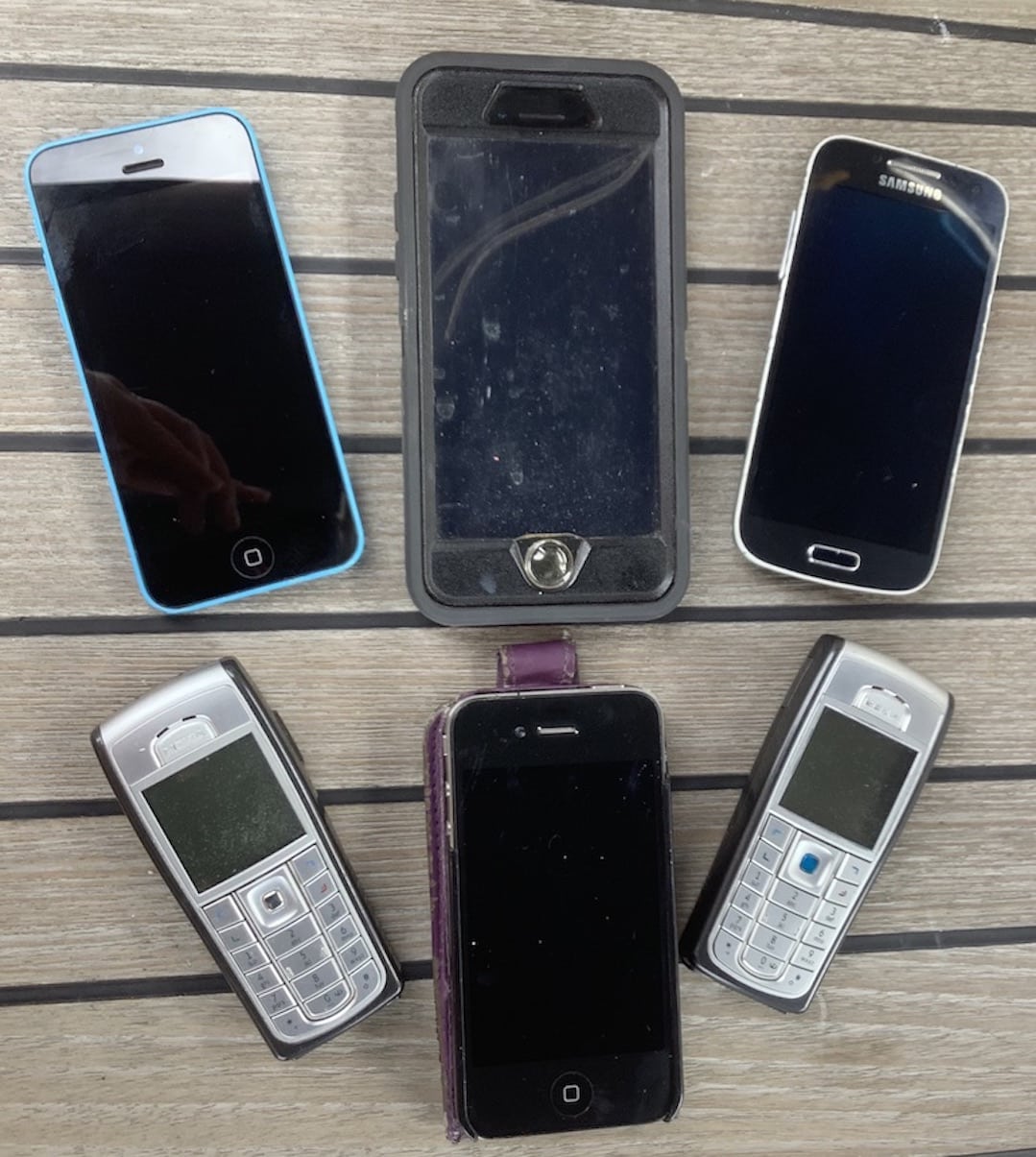
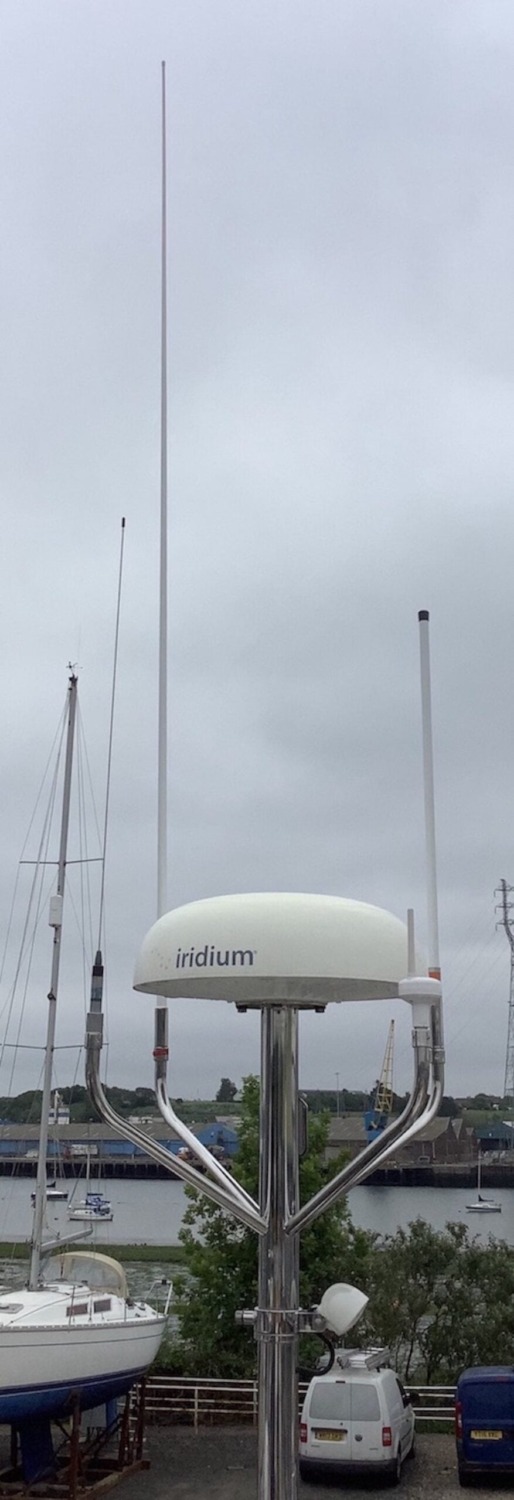
Internet and email
In today’s world, we also rely heavily on the internet for researching, purchasing things, email communication and chatting with people using Apps such as WhatsApp. We will definitely need this while away, especially for our weather forecasts, checking in and out of countries and finding out about where we are going.
When we are near land, our phones will normally give us access to all these services, either through a local WIFI source or the phone network. But, once we start to move away from land, these signals become too weak to work with the phone. We then have to switch to other systems.
On board Escapade we have something called a ‘Redbox’. This provides the boat with a WIFI network, just like the WIFI network you have at home from your router. However, your home router is connected to a telephone line, whereas our router is connected to three data sources. The first is a high powered WIFI aerial. The second is a high powered 3/4G phone signal receiver. (These can both receive data from much greater distances than a mobile phone.) The third option is a satellite connection.
Satellite
Satellite communication comes in a variety of forms, from a small hand held phone that looks like a large mobile phone to a fixed installation on board with large antenna domes.
Data rates on satellite communications are still very slow compared to today’s speeds in your house. How slow you may ask. Well, the front page of the BBC web site would take possibly 5 hours to load if you used a hand held satellite phone as a connection. For the technical: the connection speed is 2.4kb/sec. Faster systems run at 128kb/sec, but that’s still slow in today’s world where data speeds run at over 30Mb/sec.
The other thing is that the data is very expensive!! As an example, that BBC home page could cost you £100 to look at! Yes, it’s about £1/Megabyte. Compare this to your mobile phone contract.
On Escapade, we have an Iridium Pilot fixed installation with connection speeds of 128kb/sec. This also give us a phone line, so we can call home at reasonable rates (£1/min), but don’t call us, as it will cost you £15/min!!
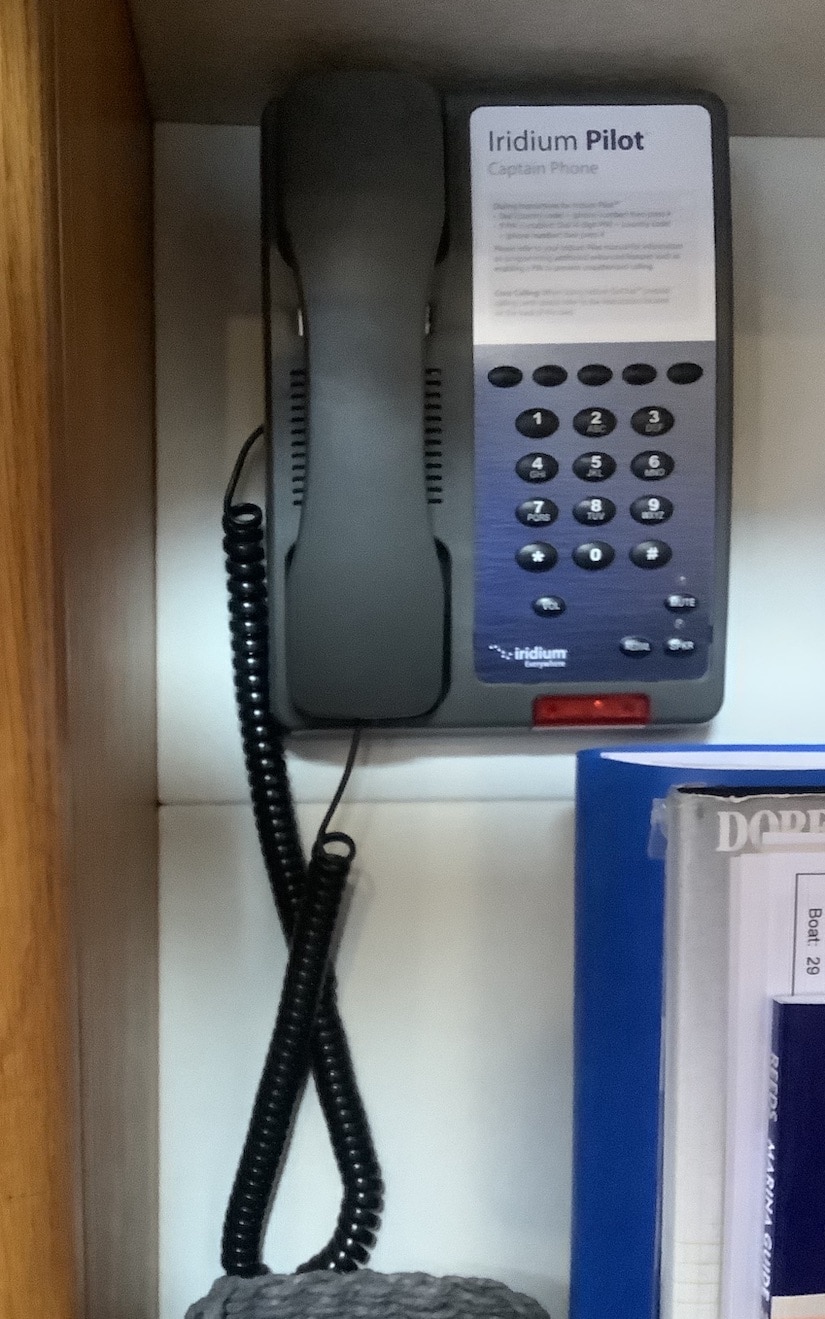
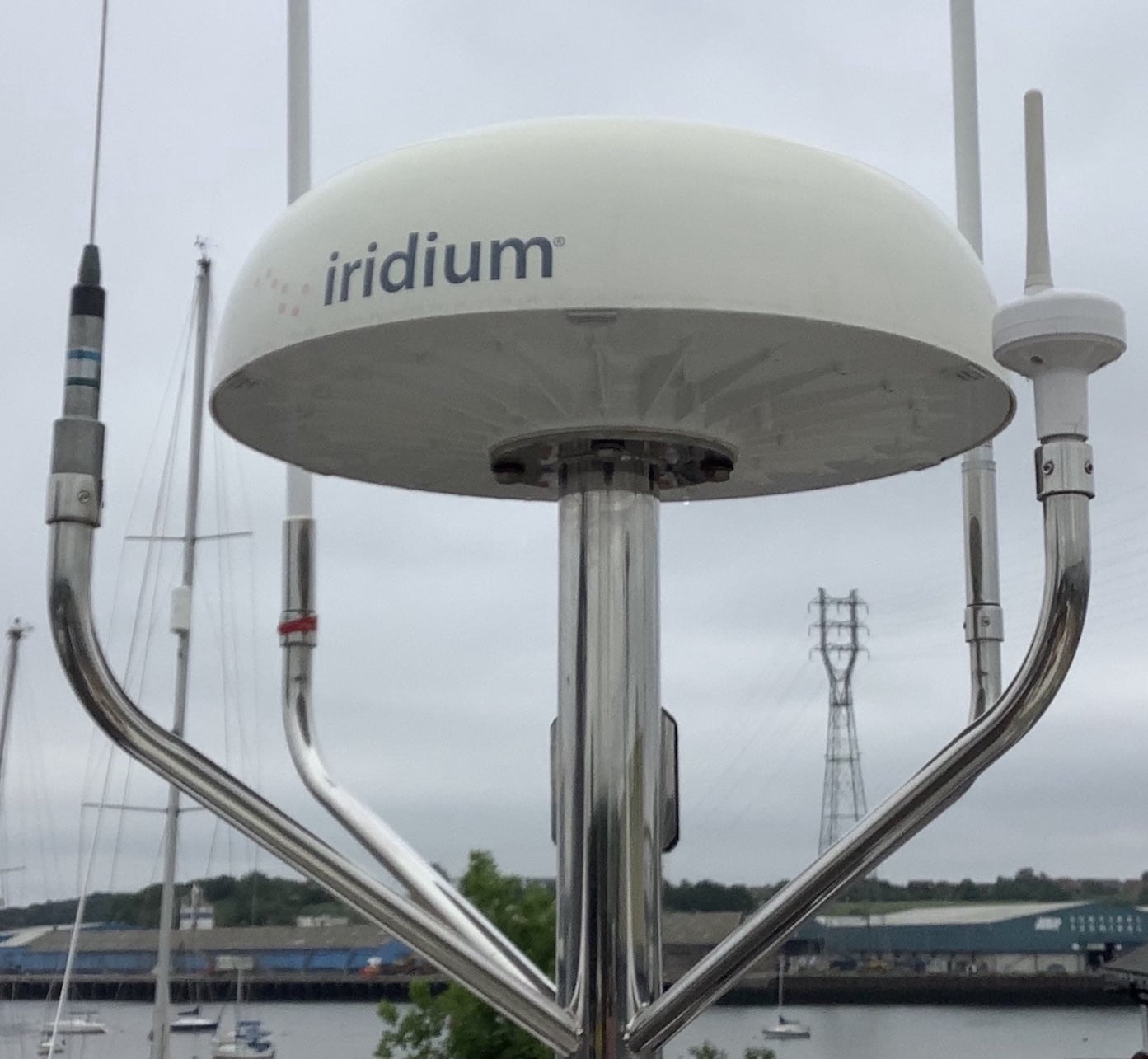
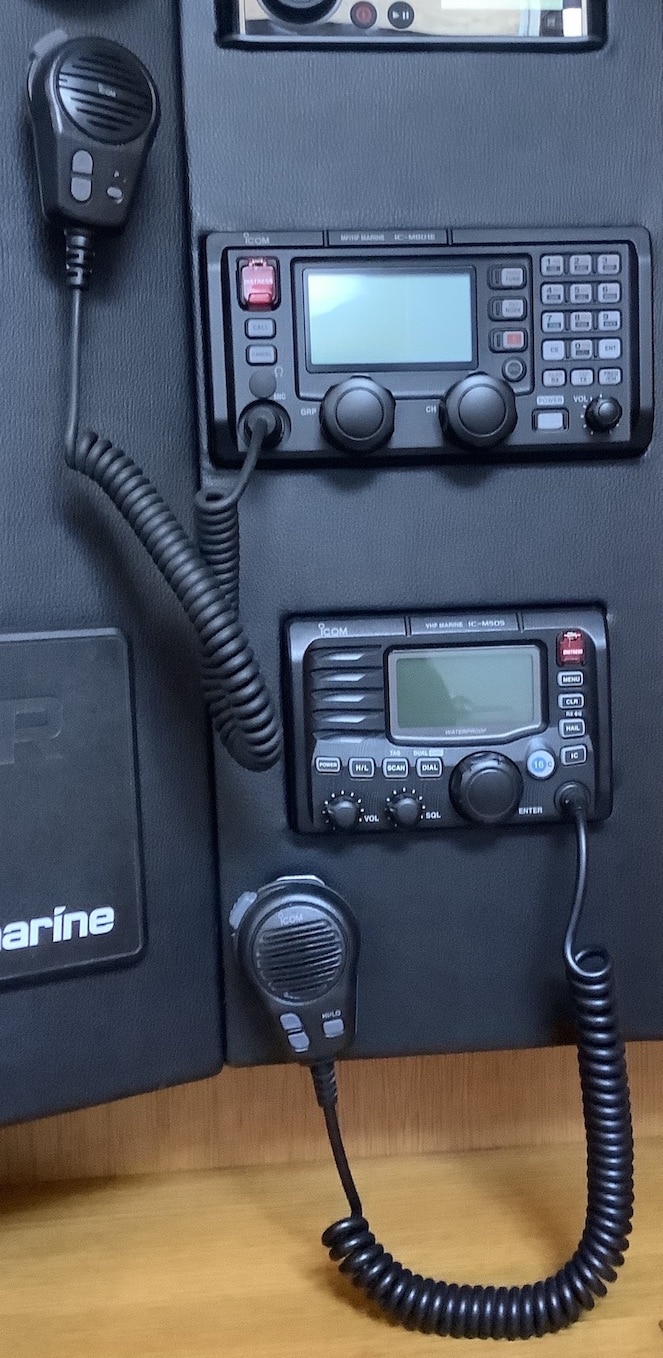
Radio (VHF and SSB)
Another way to talk to people is by radio. On board Escapade, we have two radios (no not the ones that play music – although we do have one of those too!). These transmit and receive radio messages.
The VHF is a short range radio which allows us to communicate with other radio users within aerial range. This has a maximum range of up to 50 miles on a very good day. While out on Escapade, the VHF radio is set to Channel 16 which is the general distress/safety and calling frequency. Other channels are used to talk to other vessels, ports and marinas and the coastguards. For example, when we go through the Port of Felixstowe we listen in on Channel 16 and Channel 71 at the same time (something called Dual Watch) to ensure we are not going to get in the way of a large ship. Other channels allow us to get a local weather forecast from the coastguard etc.
Our other transmitter/receiver is an SSB (single side band) radio. It is similar to the ‘ham’ radios used on shore. An SSB radio can be used across much bigger distances as signals bounce off the ionosphere. It is quite complicated, but basically you have to use different frequencies depending on distance you want to transmit/receive messages. As an example, we have spoken to our friends in Norway from Ipswich.
Around the world, there are groups of people who use the SSB to regularly transmit useful local information, including the weather. When we join the World Cruising Club Rallies, they have a daily radio net with participating boats sharing information.
The SSB will be very useful for us in remote places like the Pacific. Oh and, unlike satellite, it’s free.
All of this equipment is quite specialised and it has to be registered with OFCOM (Office of Communications).
There are strict rules about radio usage, including what you can and cannot use them for. Generally, usage should be ‘necessary’ and relating to ‘ship’s business’. Communication needs to be clear and simple and there are even key words and phrases which are internationally recognised.
It is also necessary to have ‘an authority to operate’. This means that all vessels using this equipment need to have a ship’s radio officer who is officially trained – that’s me!!
Escapade of London’s radio officer…out!!
Thorough information report Caron! Full marks. ( I’ve just finished 4 weeks of marking the NAPLAN papers – writing assessment for NSW students…. Casual job 😜 )
Many thanks!
Your brain must be bursting after four weeks. But it will give you some pocket money for your travels.
x
Blimey! You need a holiday Caron, that all looks like hard work 😉
Xxx
Hi,
The course was for four days and it only scratched the surface. But it is a bit like anything electrical: there are many functions but you only use a few. And, of course, practice makes perfect.
Hope you are all well.
xx